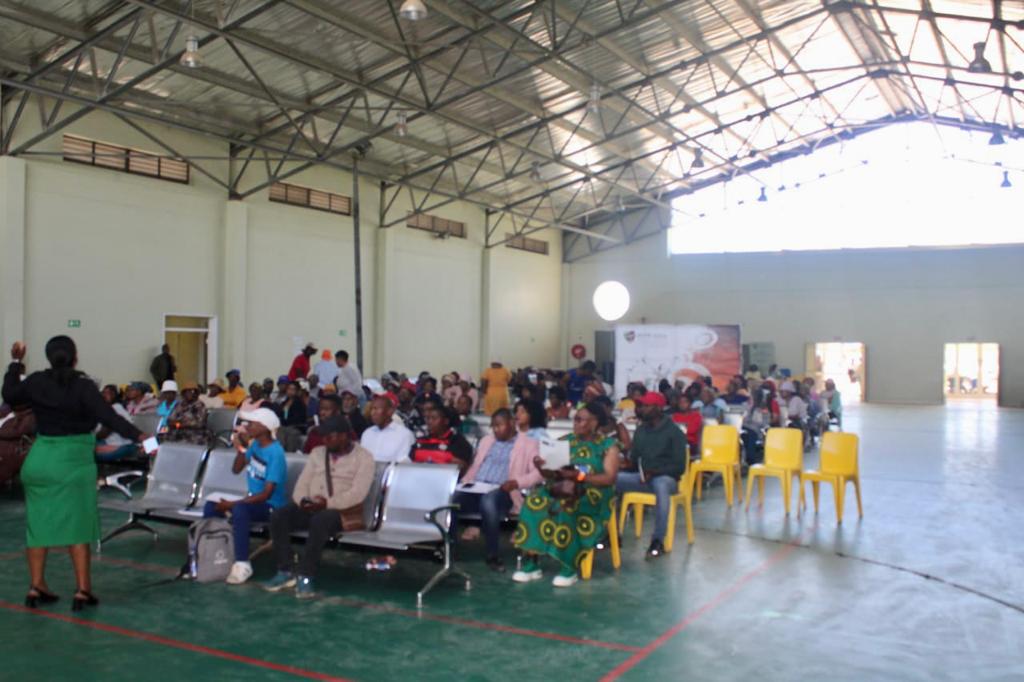By Malikhanye Mankayi
The Eastern Cape Provincial Legislature’s portfolio committee on human settlements noted with disappointment, recently, the slow delivery of only 13 housing units out of the 323 planned as the target for this year in the Sarah Baartman District Municipality.
These shocking developments emerged at a three-day Taking Legislature to the People (TLTTP) stakeholder meeting at Folley’s Ground in Makhanda and via Zoom from 24 to 26 October 2023.
All Sarah Baartman district municipalities were part of the meeting.
Day two of the event, directed by Eastern Cape speaker Helen Sauls-August, aimed to assess three areas: Human Settlement, Education and Rural Development and Agrarian Reform.
The Human Settlement Portfolio Committee chairperson, Makhaya Merriman Twabu, presented a report on human settlement after oversight of the performance of the department in Sarah Baartman.
According to the report findings, R32 400 167 (a mere 33%) of the R98 025 600 allocated by the Department of Human Settlements was actually spent in five months.
Siphosethu Ngampula, a resident of Ward 3 in Makhanda, slammed the lack of service delivery. “We were promised in ward three to have proper toilets built – it was ten years ago, and up to now, no action has been taken. Furthermore, Extension 10 residents were given houses without title deeds, so they think they can be removed any time because nothing assures them that they own these properties.”
Mkhanyiseli Solomon, of ward 11 in eThembeni, also lashed out. “EThembeni was built before 1994, and it has been promised that houses will be built. We, as residents of eThembeni, even took an initiative to go and ask Bhisho officials.
“We received a response that says we do have RDP houses. But now we have given Human Settlements a task to go and find the truth for us,” said Solomon.
Responding to the delays in housing development in the district, Eastern Cape Human Settlements MEC Siphokazi Lusithi said: “The lack of bulk infrastructure is such that we are not able to build more houses. When bulk infrastructure is not there, as a department, after we saw the delay in housing, the minister allowed us to use the percentage money of the housing to assist municipalities in finding bulk infrastructure.”
Mpumelelo Saziwa, from the legislature, presented an education report, and according to findings in the report, learners in the district are struggling to obtain birth certificates. Challenges included shortages in stationery and school transport. It also emerged that there are still old schools that need major renovations and which have poor academic results.
Another resident, Zandi Mahlahla, of Ward 6, said: “We request that money must be followed for safety and security reasons. Thanks for the fence protecting our children, but we request a strong foundation so that it might not be stolen,” said Mahlahla.
Giving a response on curriculums, acting Education MEC Nomakhosazana Meth conceded that the district’s learners were lagging behind on academic skills development. “On skills development, we agree with the speakers who spoke here to say some of the learners are not well enough academically – they will need technical skills if we need to develop our economy. Hence, now we have a new curriculum where we focus on technical studies.”
The meeting also heard that some of the major problems faced by the Department of Rural Development and Agrarian Reform was the response stock theft, wild animals killing goats and the drought. Access roads to farms were in very bad conditions, and it was recommended that the department works closely with the transport department.
Speaking on land issues, Rural Development and Agrarian Reform MEC Nonkqubela Pieters said access to land is a general problem in communities and farms. She encouraged those interested to apply for farms that are not utilised when advertised.


